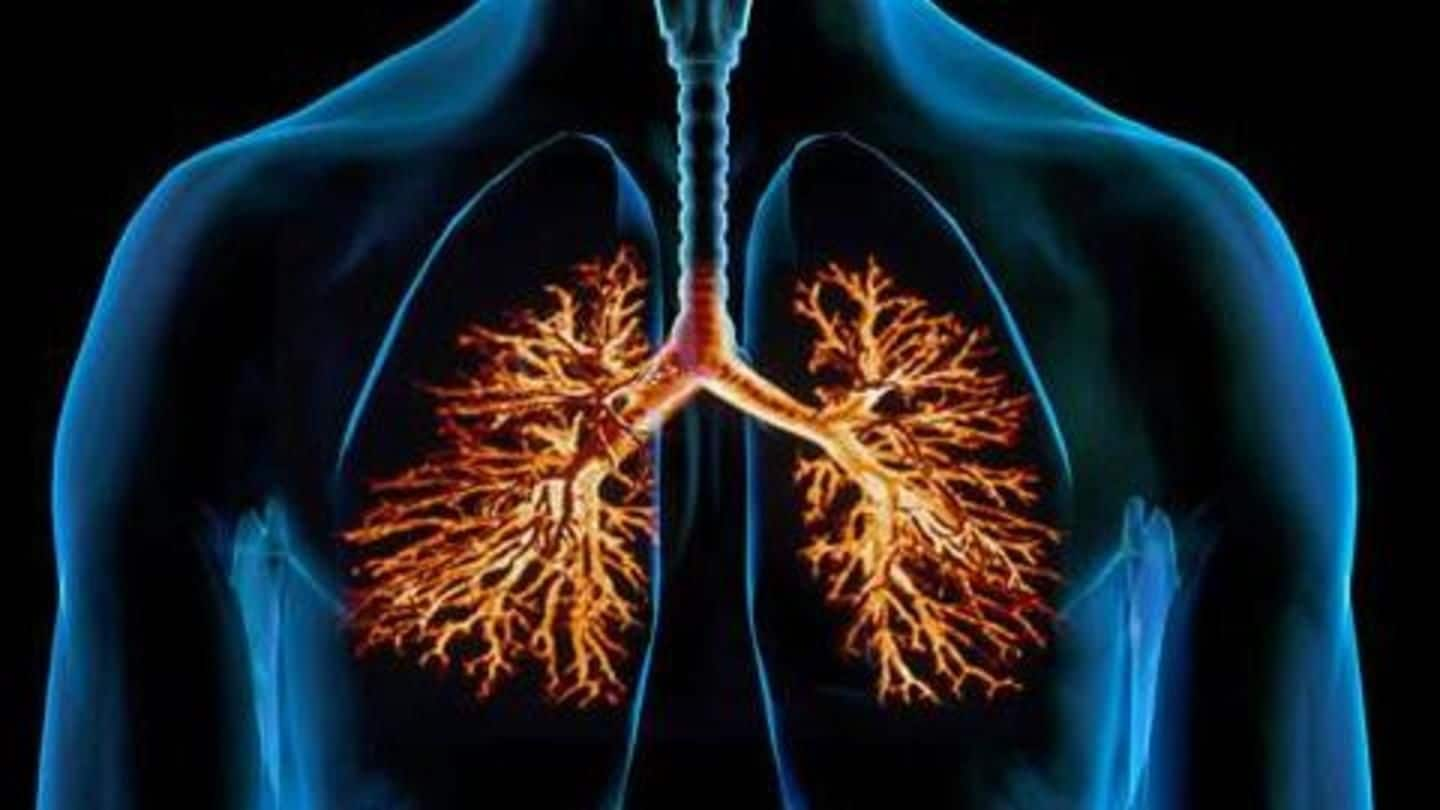
Everything you need to know about respiratory diseases
What's the story
Respiratory disease is a type of disease that affects the organs and tissues that are involved in respiration.
The respiratory system consists of many parts of the upper respiratory tract, bronchi, trachea, bronchioles, pleura, alveoli, and pleural cavity.
The respiratory system might get affected by smoking, bacterial and viral infections, pollution, and dehydration, among others, which can cause various respiratory disorders.
Here's more.
Data
Respiratory diseases: 235 million people suffer from asthma, says WHO
According to WHO estimates, currently, 235 million people have asthma and 3 million people die each year from Chronic Obstructive Pulmonary Diseases (COPDs) while millions have allergic rhinitis and other often underdiagnosed chronic respiratory diseases. Here are the details about the types of respiratory diseases.
Type 1
Asthma: Difficulty in breathing due to inflammation of airways
Asthma is a chronic respiratory disease that causes difficulty in breathing due to inflammation of airways.
The common symptoms of asthma are wheezing, shortness of breath, feeling of tightness in chest, and coughing.
Asthma might occur due to airborne allergens, respiratory infections, physical activity, and air pollutants.
Unfortunately, asthma can't be cured, but its symptoms can be controlled.
Asthma can be managed using inhalers.
Type 2
COPD: Disease that causes obstructed airflow from lungs
Chronic Obstructive Pulmonary Disease (COPD) is a lung disease that causes obstructed airflow from the lungs. It's caused by long-term exposure to irritating gases that damage lungs.
Common symptoms of COPD include coughing that produces mucus, breath shortness, wheezing, and chest tightness.
The two main types of COPD are emphysema and chronic bronchitis.
There's no cure for COPD. But, treatment may relieve its symptoms.
Type 3
Chronic bronchitis: Inflammation of the lining of bronchial tubes
Chronic bronchitis is the inflammation of the lining of bronchial tubes, which carry air to and from the lungs. There are two kinds of bronchitis, acute and chronic.
The common symptoms of chronic bronchitis include wheezing, low fever, breath shortness, and chest tightness.
Its common cause is cigarette smoking. The disease cannot be cured permanently but its symptoms can be controlled with treatment.
Type 4
Emphysema: In this, air sacs of lungs are damaged
Emphysema is a condition in which the air sacs (alveoli) of the lungs are damaged and enlarged, causing chronic cough and breathlessness.
Cigarette smoking is the most common cause of emphysema. Emphysema can also be genetic.
Currently, there's no cure for emphysema, but quitting smoking can prevent the disease or stop the symptoms from getting worse.
It can also be managed with yoga.
Type 5
Cystic Fibrosis: It affects cells that produce sweat, digestive enzymes
Cystic fibrosis is a genetic disease that affects the cells that produce sweat, mucus, and digestive enzymes.
Commonly affected organs include lungs, pancreas, liver, and intestines.
In cystic fibrosis, the body produces thick and sticky mucus that can clog lungs and obstruct pancreas.
It's a life-threatening disease, and people with this condition tend to have a shorter lifespan. There's no treatment for the illness.